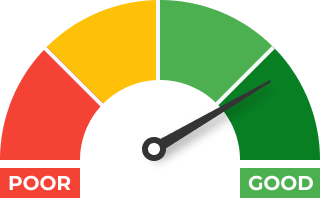If you watch the news on a regular basis, whether it’s local or national, you can probably remember the last time that there was a food or beverage recalls. Unfortunately, product recalls, withdrawals and safety alerts are almost a daily occurrence, according to the U.S. Food and Drug Administration.
What’s the situation?
In our industry today, trying to produce food on a massive scale can lead to problems with supply, cleanliness and other factors. It is easier than ever, thanks to the age of smartphones and technology, for us (the consumers) to be informed of these food and beverage issues but have we become desensitized because of their frequency? The up-and-coming generation of Millennials have truly shown an interest in the way that our food is produced, handled and served and this is a good thing because, without a public that cares, it’s easy for all the involved parties to be less vigilant, cut corners or save money, which could ultimately put the consumers at risk.
Chipotle and E. coli
Just a few years ago, the Mexican food chain Chipotle was responsible for a massive outbreak of E. coli that spread throughout 11 states. While only 55 people were infected, the effects were devastating. Chipotle lost much more than money; they lost the trust of their customers. Whether or not it was Chipotle’s fault (FDA reported being unable to identify the food item responsible after conducting tracebacks through the supply chain), the once loyal patrons were quick to denounce all brand loyalty.
The concern
Consumers are constantly concerned with the health and safety of the food supply chain around the world. Imported foods often raise much more apprehension with consumers because the standards of production fall outside of the U.S.’s regulations. While some countries have strong standards and reliable products, it cannot be said for all participating countries that export food items to America.
Major food crises will always make the headlines but what about the smaller or less severe instances? The public has a right to know as soon as the companies are made aware of the situation.
However, there always seems to be a delay in revealing information when it comes to the health and safety of the public, which isn’t comforting. The need for transparency has never been greater because companies sometimes still refuse full disclosure (despite that being the worst choice for their customer base). When a company decides not to release details, delays disclosing information or refuses to talk altogether, the logical conclusion for the public to come to is that the company was guilty and is trying to hide something.
The Importance of Transparency
Transparency to consumers means much more than the basic product information; it means relevance, timing, reliability, accuracy, and usefulness. Because we live in a digital era, we as consumers expect all information to be immediate. If it relates to the health and safety of the public, companies need to disclose and do so quickly.
The speed at which information can be shared now is truly astonishing and there really is no place for companies to hide. Consumers have reached the point where they demand to know what is in their food, where it comes from and that the companies will stand behind their products to gain the trust.
Ways Your Restaurant Can Improve Transparency
- Disclose information about your supply chain (provide the names of your food sources)
- Make this information easily available on your website or menu
- Clearly list ingredients, any potential allergens and/or animal products. Special diets such as vegan and gluten-free have become very common
- Always communicate mislabeling, contamination, recalls and safety alerts openly, quickly and honestly
With so many choices available to consumers today, losing trust and loyalty often times spells the end. It is awfully hard to rebuild trust and gain those customers back but mistakes happen. When it comes to running a successful restaurant or bar, many things are important like transparency, consistency, quality, and customer service.








 +1 (786) 292-2373
+1 (786) 292-2373 insights@glimpsecorp.com
insights@glimpsecorp.com





